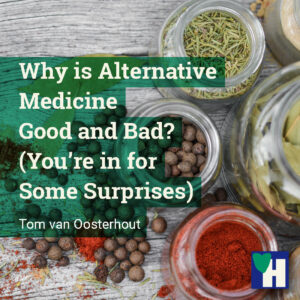
Why is alternative medicine good and bad? To prevent becoming schizophrenic from answering this question, I will only discuss the topic on some broad, but very surprising lines.
First I will introduce some of my personal experiences with medicines. Next, I will debate alternative and traditional medicine and quackery.
These introductions and debates are followed by my explanation of why we as medicine customers exaggerate the value of our health.
Some of the links are affiliate links. As an affiliate associate, we earn a commission when you purchase any of the products offered through the shared links at no extra cost for you. This helps us maintain this website.
Table of contents
Why is alternative medicine good and bad?
- Traditional medicine anchored in local, often age-old customs has proven to be good in numerous cases;
- What is called quackery is sometimes very surprising;
- Modern evidence-based medicine is called evidence-based for a reason;
- We need to be more realistic. Stop the sanctification of our health.
The gout
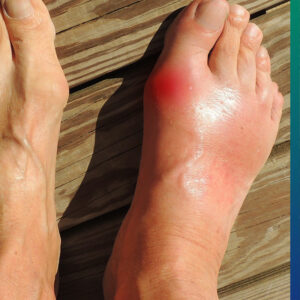
Some 15 years ago I had my first gout attack. In the following 5 years, I had 2 more. Finally, I caved into the pressure to visit our GP.
“You have gout,” he said. What a surprise! “You eat too much red meat and drink too much red wine.” That was even more of a surprise.
At that time I hadn’t been eating red meat for at least 30 years, and I hardly drank any alcoholic beverages. Specifically not red wine or any hard liquor.
His remedy was medication. Which I had to take for the rest of my life. I politely declined the offer, thanked him for his good advice, and went home.
A quick search on the internet revealed that I had to adjust my purine levels. That I did with a diet. I also completely stopped drinking alcohol. After I started my home ‘medical’ therapy, I never ever experienced a gout attack again. I’ve been gout-free for more than 10 years.
Related: Why is Eating Healthy Important and Where to Start?
Alternative medicine
Can my approach be called alternative medicine? I would never call it this myself. For me, it is more something like common sense.
I listened to my body, experimented with some tough disciplinary measures, and was subsequently lucky to get rid of my gout attacks. Who knows what actually did the trick?
A couple of years later, I got shingles. Where gout attacks are painful, shingles are not. You just get covered in blisters. It itches a little bit. Again I went to the doctor.
“You need medication,” he said again.
“How quick will it heal with medication?” I asked.
“Within 3 weeks you’ll be cured,” he answered.
“And when I do not take any medication?”
“You’re cured within 6 weeks.”
Again I thanked him for his time and his good advice, declined his offer of medication, and went home. I did nothing exceptional and after 6 weeks the shingles were gone. I still have some blank spots, scars from the shingles, on my arms which I cherish as a token of the resilience of my body.
Traditional medicine
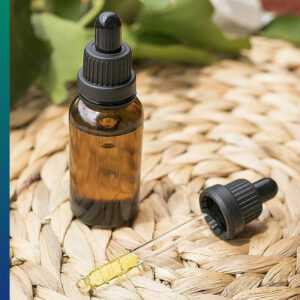
When I was young I was playing darts with a friend outside in their garden. By accident, he threw a dart firmly in my leg. I ripped the dart out of my leg and it started bleeding badly.
His mother, who was born and raised in Srilanka, emerged in the garden to look at what happened. She saw my leg, went inside, and came out again with a small brown bottle.
She opened the bottle and put just a very small drop of a thick brown liquid on the wound on my leg. The bleeding stopped immediately. “This is also good against infection of the wound,” she explained. The wound healed in no time.
Recently Hannie used the juice of an aloe vera to reduce the pain of some superficial wound of one of our grandchildren. It was also meant to control infection of the wound. The juice did a great job. After a few hours, all was well again.
In Africa, 80% of primary medical care is based on traditional medicine. A lot of medications used in modern evidence-based medicine are made of plants that grow in rainforests. Another reason to invest more in the preservation of such forests.
Quackery
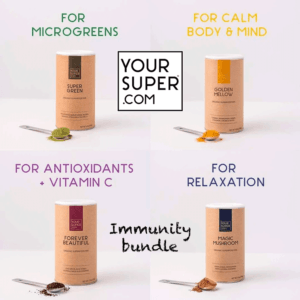
Why alternative medicine is good and bad, can be explained exceptionally well from the concept of quackery. The more so because it’s originally a Dutch word.
The word quackery resembles the quack-quack ducks make when chasing each other through the pond. This quack concept was used to indicate the shouting of quacks on the Dutch Medieval open-air markets. The oldest anti-quackery organization is also Dutch.
The most interesting way to discuss quackery as alternative medicine is by looking at some of the most noteworthy quacks. You’re in for a very big surprise!
Samuel Hahnemann and homeopathy
Samuel Hahnemann is generally accepted as the founder of homeopathy. “Like cures like” was his slogan. Meaning that a substance causing a symptom of a disease in healthy people can cure similar symptoms in sick people.
The problem with homeopathy is that there is no scientific evidence supporting its claims. Moreover, we know that any claims about homeopathy are contradicted by the latest research in physics, chemistry, biology, and biochemistry.
Spain has traditionally been a commercial foothold for homeopathic ideas and products. However, during the last five years, all academic faculties of homeopathy have been closed. All homeopathic products have been banned by the department of health.
L. Ron Hubbard and dianetics
Hubbard is probably best known as a (very bad) science-fiction author and the founder of a church called Scientology.
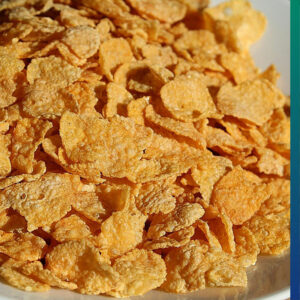
He must also be called a quack. As a quack, he is best known for his occult invention of what is called dianetics. This is a pseudo-psychiatric treatment based on nothing but Hubbards science-fiction mind. No scientific evidence exists supporting Hubbards’ claims.
John Harvey Kellogg and corn flakes
Yes, this is the very famous Kellogg, from Kellogg’s corn flakes. Nothing wrong with those corn flakes by the way. Many people start the day with a nutritious corn flakes breakfast.
However, Kellogg’s is also known for its attempts to introduce health claims in its advertising. As an independent communication consultant, I once was asked by Kellogg’s to preside over a meeting.
During this meeting, Kellogg’s introduced scientific evidence substantiating one of their claims that their corn flakes were healthy. Unfortunately, the claim was too insignificant to be of much commercial success.
Personally, I believe nothing is wrong with their corn flakes. But to call them nutritious is enough claim for me. By the way, I never ate any corn flakes, and own no stocks in Kellogg’s.
Louis Pasteur and milk
Pasteur is probably one of the biggest surprises in the list of quacks. He is generally considered to be one of the founders of the scientific branch of microbiology.
Moreover, he reduced mortality from childbed or puerperal fever, introduced a vaccine for rabies (a deadly, infectious disease of the brain), and invented pasteurization to kill pathogens in milk. This last feat saved many children from premature death.
So, why is Pasteur a quack? He only appears in the lists of quacks because initially his inventions were met with a lot of skepticism. In hindsight, this skepticism was totally inappropriate.
Linus Pauling and our immune system
Pauling is a Nobel prize-winning chemist and the founder of orthomolecular medicine. One of his claims is that a massive dose of vitamin C could cure a common cold. Later he even claimed that such a massive dose of vitamin C could cure cancer.
Orthomolecular medicine is more than a massive dose of vitamin C. Advocates of orthomolecular medicine claim that this type of medicine can treat disease and can correct imbalances or deficiencies of our biochemistry. The balance can be corrected with supplements of vitamins, minerals, amino acids, trace elements, and fatty acids.
The problem with these claims is that orthomolecular medicine can treat disease. This is vehemently rejected by proponents of modern evidence-based medicine. I agree.
However, this opposition does not discuss the preventive claims of a well-balanced diet, with supplements to correct what modern industry takes out of our food. Nor does it discuss the preventive claim of the use of supplements as a reinforcement of our immune system.
Both my examples of gout and shingles show that a healthy lifestyle can do wonders. Food plays a significant role in a healthy lifestyle. Supplements are required to replenish what commercial food production leaves out and to strengthen our immune system.
Related: Does Vitamin C boost your Immune System in a Successful Way?
Wilhelm Reich and the battle against space aliens
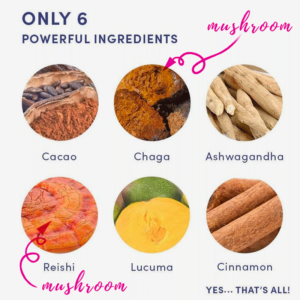
Sigmund Freud’s psychoanalysis has by now been firmly placed in the scientific trash can. One of his students, Wilhelm Reich, developed psycho-analysis to an even higher level of pseudo-science.
Reich developed the Orgone (esoteric energy) Accumulator, which he claimed could manipulate the weather, battle space aliens, and could cure diseases.
As it happened, humanity could manipulate the weather to a level even Wilhelm Reich could never have dreamt of. Climate change was not a topic in his days. He lived from 1897-1957.
His Orgone Accumulator was designated as “fraud of the first magnitude” by the US Food and Drug Administration. Because he refused to defend himself in court he was imprisoned for 2 years and died there.
Why is alternative medicine good and bad?
There is no doubt that modern evidence-based medicine contributed substantially to the longer life in better health we now experience. The Dutch scientist Harry Lintsen estimated that modern medicine contributed 15% to the improvement of our current lifespan.
Despite the enormous rise of our lifespan and the subsequent improvement of our health, at the same time, people got more and more anxious about their health. The medical history scientist Porter calls us hypochondriacs. Le Fanu, another medical history scientist, even calls us neurotics, when it comes to our health (see the video below).

Since the Seventies of the last century, however, no significant breakthrough in medical technology has occurred. This must be attributed to the substantial power and rigor of modern evidence-based medicine. The current pandemic illustrates how tight the grip of modern professionals is on politicians and the general public.
For some problems, this might perhaps be good. However, not for the development of medical therapies. This is best illustrated by the fact that the call for a vaccine started way earlier than the call for a cure for the most vulnerable people. With detrimental consequences.
This is why it’s perhaps better to be less stressed about the existence of alternative medicine. Even when we initially oppose alternatives that improve evidence-based medicine, we should take them into account. Louis Pasteur is perhaps the best example of how we need to keep an open mind to what happens around us. We have a strong and very personal responsibility in this.
What kind of alternative medicines do you use? Please let us know in the comment box.

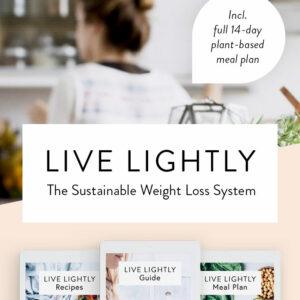

Alternative medicine is one kind of medical treatment that is used instead of traditional therapies. It could be useful for most people who are suffering from various kinds of illness. Where we live there is a lot of traditional medicine, which does a perfect job. Besides most people here can’t afford commercial medication.
Hi Louis,
Thank you for your comment. Traditional medicine, rooted in ancient customs, always based on ages of experience, often is effective.
Somewhere along the line, through time and history, we forgot how important and useful traditions can be. Once I interviewed a physician who stated that most illnesses vanish in 5 days.
My experience is that we perhaps tend to overvalue modern medicine.
Nevertheless, stay safe, stay healthy.
Regards,
Tom
I only resort to taking meds if it’s absolutely necessary, this is how I was raised and this is what I preach. I see people reaching for an OTC fix whenever they have a small headache, indigestion and so on. Leave your body to work its way out to these things, don’t intoxicate it with a “quick fix”.
Hi Aurora,
Thank you for your comment. Incredible not, how people are so easy with medication. ‘Quick fix’, that is the right qualification.
On short notice, this might support you. Although I even doubt that. However, in the long run, you’re always worse off.
I own an original professional pharmacological atlas. The atlas origins from Germany. So it’s thorough. And although I understand that they are compelled to refer to side effects of medication, it came as a surprise to me that every type of medication comes with severe restrictions because of side effects.
Some medication is even directly detrimental to specific bodily functions. Or threaten all our corporal functions, such as opioids. It’s incredible to see that the opioid pandemic in the USA causes more victims than the COVID-crisis.
For now, stay safe, stay healthy.
Regards,
Tom